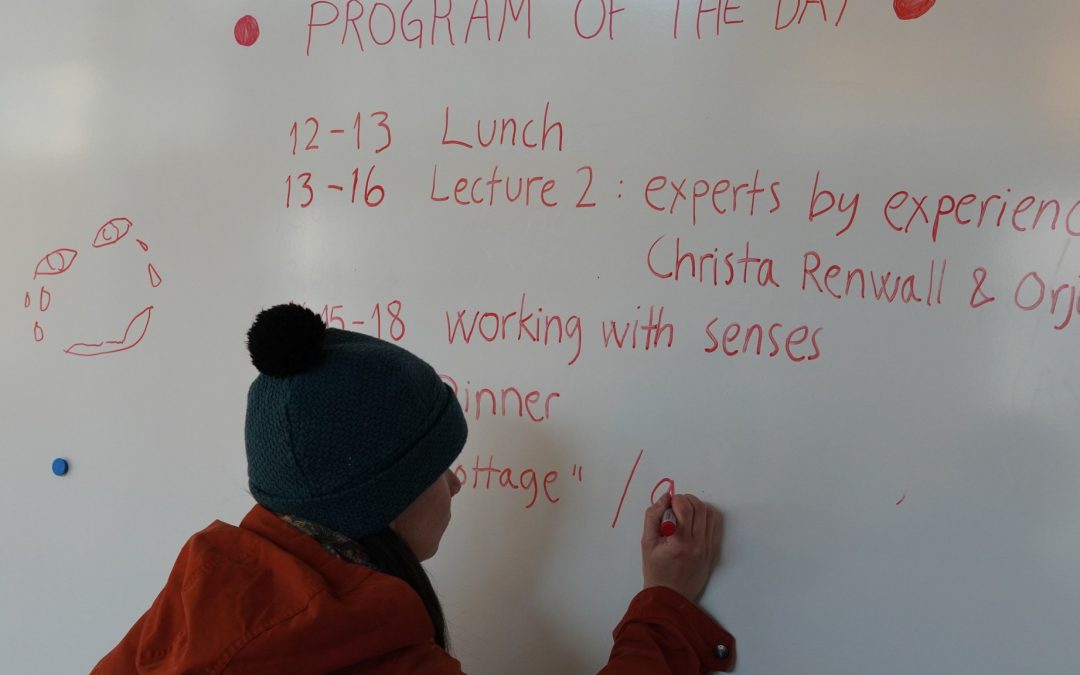On World Autism Awareness Day we want to dive deep into the needs of Children with Autism Spectrum Disorder (ASD). Therefore we interviewed two experts by experience: Christa Renwall and Orjo Pättiniemi.
Christa and Orja are part of “Autism Finland” which is a national non- governmental organization promoting the inclusion and equality of people with autism spectrum disorder and their close ones in society. Both gave us a lecture at the very first Clownexus artistic laboratory about Autism in October 2021.
1. What do you remember about the artistic laboratory in Nuuksio, Finland, what observations did you make about hospital clowns?
Christa Renwall: The hospital clowns were clearly very professional. They were also curious and interested in learning about the autism spectrum.
I also noticed, though, that traditional theatre world techniques and certainly traditional clowning techniques were firmly in their backbone. The most important thing would be to be able to do “smaller” and “more sensitive” as well. My experience was that clowns did quite a lot, and with a lot of energy. With a person with autism spectrum disorder, less is more. 🙂
Orjo Pättiniemi: I remembered how wonderfully heartfelt the hospital clowns are, how intensively and how much they think about how they meet the child.
2. What strengths could a clown have in entering the world of a child with autism spectrum disorder?
Christa Renwall: Extensive knowledge of autism and at the same time an understanding that all children with autism are different and need different things. A willingness to find out what this particular child is like. A deep understanding of sensory hypersensitivity or hyposensitivity. A broad understanding of how to communicate with different senses. Or, for example, knowledge of how to use picture cards or signs.
Sensitivity, gentleness and flexibility are good qualities. Ability to read the child’s energy, mood, and body language. The ability to understand when to give impulses and when to distance oneself. Openness and listening skills are also very important. It is absolutely essential to know how to “listen” beyond the ears; the energy or mood in the room, the child’s energy…
Orjo Pättiniemi: The strength is that clowns have the desire and curiosity to enter the world of the child and meet them there.
3. Could healthcare clowning have a positive impact on children with autism spectrum disorders?
Orjo Pättiniemi: Yes, of course, meeting people as themselves has positive effects. When you are confronted with challenging situations, it has a positive effect on the person themselves.
Christa Renwall: Certainly, especially if you find a way of interacting that is just right for that child. It certainly helps with distraction, for example. It is important that communication (between parents, child and staff) remains open, even in challenging situations. This is where clowning can have a big positive impact. The aim is to prevent a meltdown or shutdown, or to enable a quicker exit.
4. What is your message to the people on World Autism Awareness Day?
Orjo Pättiniemi: There are so many autistic people that once you’ve met one you’ve only met one and basically we’re all the same.
Christa Renwall: Learn from people with autism spectrum disorder. See the world through someone else’s eyes; different but equally valuable. Dare to enter this world; to see difference as a beautiful thing. Respect is a prerequisite for brilliant interaction and understanding of another person’s world.





Recent Comments